Florina recalls Ion Cazacu : ” my father was burnt alive, and he hasn’t had any justice”
Fifteen years have passed since Ion's murder, a Romanian tiler who was assaulted by his boss in Gallarate. His daughters now are living in the city: on Wednesday Florina will exhibit in national preview her book, which she has written with Dario Fo.
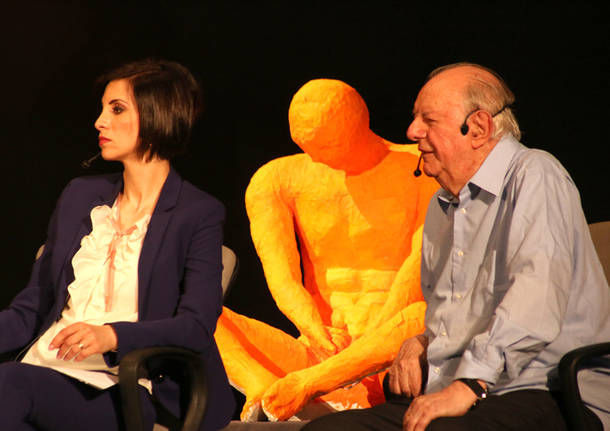
We meet Florina Cazacu in a local coffee bar in Gallarate. It is near the schools and in the early afternoon of a typical Friday; a lot of mums are waiting for their children to finish school. Florina recalls her father’s history , Ion Cazacu, burnt alive by his boss, 15 years ago; it is a very long dialogue about that episode, the process, and the decision, taken by her and her sister to settle down right in the city where her father arrived in the end of the ’90 and where they live their daily life today. “Many people connect Gallarate to this episode, but we can demonstrate that this city can be remembered for other things” said Florina. “It is not only the city where my father was exploited and where he died, but it has also become my and my daughter’s city. For me it is an authentic way to redeem the image of the city. She displays us a series of photos about a family birthday, about Ion during a mountain trip near the city where he usually went for a walk; the colour photo, probably the last one, which was printed in Italy.
Florina Cazacu and Dario Fo will exhibit in national preview, the book “un uomo bruciato vivo- storia di Ion Cazacu” in Gallarate on Wednesday 13th of May. The exhibition will take place at “Teatro del popolo” in collaboration with Fillea Cgil at 5:30 p.m.
The story starts with the arrival of Ion in Italy (it was not his first work experience abroad).
“My father had come to Italy in 1997. He came back home in December of 1999. We spent that Christmas and New Year’s Eve together, then he came back to Italy in January”.
Three months later Ion was assaulted: how did you know about the fact? “He used to call us at Sunday and he called us the Sunday before too. It happened on a Tuesday evening and we knew about the fact only on Friday; on March 17th, at 5 pm the wife of one of his colleagues knocked on our door. She told my mother to wait for a call which concerned my father, and the call would come from her husband and not from my father. She talked about a rift with his boss but we understood that something more had happened. We went to school that day, I was at 11th grade and my sister at 9th. When we got out of school we saw my mother and her brother, who lived 150 km apart: both of them were crying”.
Have you gone to Italy immediately?
“The only possibility to go in Italy was to inform the mass media because at that time you could not go in Italy without a stamp. While we were coming back from school, in the car they told us about an incident and that a boiler had burst. Once at home we wanted to switch on the tv but in one way or another they prevented us from watching.
The door bell kept on ringing but we could not see what was happening. Finally I asked my mum tell me the truth. She told me my father was a victim of the madness of his boss, Iannece.
We knew him well. My father sometimes talked about him and always in a good way. He brought us some presents and one panettone ( traditional cake from Milan) for Christmas. I could accept the fact that he had died because of a boiler explosion but when I understood that he was a victim of an other person, my world fell to pieces. My father always described Italy as a wonderful and democratic country where rights and work were guaranteed”.
It was not the same for him.
“I understood that Iannece was a violent person only after the fact, and I know that other two people were his victim, fortunately with less serious consequences. With my father’s death I understood that he was exploited. He worked 15/18 hours per day and he was not paid from the beginning of January.
He had never said that he was living in a two-room apartment of 40 square meters with other 11 people, but I never change my mind on Italy, I don’t want to confuse a killer with a whole country”.
She did you come to Italy, for the trial?
“In 2011 I come to Veniano(Como) where a ceremony was organised for Ion and I met Dario Fo. Since 2002 , as an adult and a student of law I come here for the trial. It was a moment of glory because I do believe in the sentence which was written in the classrooms: “the law is equal for all” . But the experience was negative and terrible. All that I imagined ended up the contrary: during the trial, from the words pronounced by the defence my father from victim become the guilty party.
I couldn’t accept that fact. Seeing the judgment reduced from 30 to 16 years I saw my father die again by the justice.
All my principles of life collapsed. I promised that I would never have gone again to university or court.
How did you come in Gallarate, the city where your father lived?
” I settled down here in Italy after the trial because he didn’t receive justice, but I found solidarity and people who loved us. I didn’t come immediately to Gallarate, the approach was gradual. First, we had lived for 2 years in Appiano Gentile , then in Cairate for another 2 years, and finally in 2008 in Gallarate. I wanted to go to the same places where my father went to: so many times I walked through the street and sidewalks where he also used to go. I thought he could come out from an alley and I had the hope that he could appear in front of me. It seemed that he appeared in the crowd but I realised that it was only an hallucination. But I have never been to the house where the tragedy occurred, I can’t do it”.
When did the idea of writing a book about your father life born?
” It occurred immediately, when I was just got out of court. I wanted to tell the facts as they had happened and I have never accepted the interpretation of the facts of the trial. A night of three years ago I decided that it was the right moment to write down something about the fact. It was a terrible night. I wanted to tell the story given that my father could not do it any more and I had to put the ideas in order. As I was the only protagonist of the story I needed a hand: Dario Fo was close to us and he knew all the details of the story. One morning I took courage and I called him; we met the day after and after a week we already had the introduction pages of our future book.
What does the book mean to you?
“Telling the truth means redeeming my father; he was a ghost in Italy, a person without documents. In 2010 Iannece already walked through the same street where my father walked. I wanted to awake the conscience of the people who had the moral and institutional duty to make justice.
As a mother I should teach to my daughter to denounce an injustice immediately. But I don’t believe in this principle and I can give her a value that I lost. But without justice there will be the far west law, that of the strongest people and I don’t want that my daughter grows up in a world like this.
I had psychological support while I was writing. I divided the story in topics, archived the facts of the past to leave the floor to the beautiful things of the future.
In Italy and Gallarate a lot of people remember the story of Ion Cazazu. Is it a famous episode also in Romania?
“Dario Fo in a tv programme with Daria Bignardi on th eLa7 channel talked about the story. The piece of interview also published on Varesenews website was seen also from several media in Romania. A lot of people called me, my sister And my mother, and they didn’t know that I was writing the book”.
Your mother lived for a period in Italy. Where does she live now?
” My mother returned definitely to Romania two years ago, and the body of my father was taken there and she wanted to take care of that piece of land where his grave is. For a long time we had guilty-feelings then we realised that we could not do more than this. We lost that battle but the real defeat in the whole thing is justice”.
Which is the strongest memory you have of your father?
“I remember the last parties we had together. On New Year’s Eve I had to go out with my friends, in the city centre where we lived famous artists acted for us. My father took my hand, made me sit at the table; I wanted to go out but he started to tell me his desires for the future. I stood up because I could not understand the meaning, I banged my fist on the table as if I was at court and I said: ‘court is suspended. Up to 50/60 years’. I was recommended by my father to listen carefully. He told me lots of things that at that time I didn’t understand. But I remembered all these sentences 4 months after the funeral”.
I have always had a particular feeling with my father while my sister was closer to my mother. When you are 17 you see your father as the perfect man.
Ion was the victim who paid for all of it, but the pain of a life as an invisible man in Italy also concerned other people, those who shared a house of few square meters with him. Have you seen his colleagues again? Where are they today?
“His colleagues are spread all over Italy. Some of the, came back to their families after years of work. They were all present at my wedding in 2005 all of them were there except for my father. It was a moving moment for all of us”.
TAG ARTICOLO
La community di VareseNews
Loro ne fanno già parte
Ultimi commenti
lenny54 su A Varese Salvini prova a ricucire passato e futuro della Lega, ma Bossi non c'è
PaoloFilterfree su A Varese Salvini prova a ricucire passato e futuro della Lega, ma Bossi non c'è
axelzzz85 su A Varese Salvini prova a ricucire passato e futuro della Lega, ma Bossi non c'è
elenera su A Varese Salvini prova a ricucire passato e futuro della Lega, ma Bossi non c'è
Roberto Colombo su A Varese Salvini prova a ricucire passato e futuro della Lega, ma Bossi non c'è
flyman su Quarant’anni di Lega e quelle scritte nel paese del “Capo“

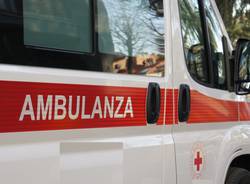
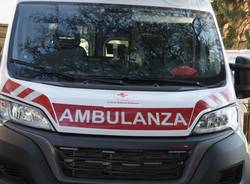



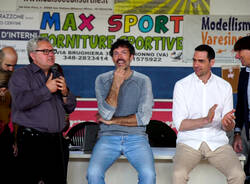

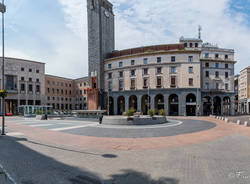

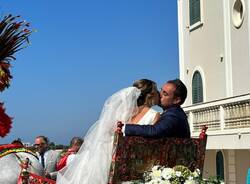

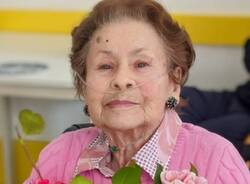

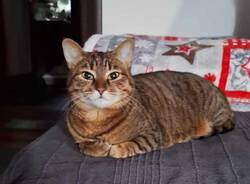


Accedi o registrati per commentare questo articolo.
L'email è richiesta ma non verrà mostrata ai visitatori. Il contenuto di questo commento esprime il pensiero dell'autore e non rappresenta la linea editoriale di VareseNews.it, che rimane autonoma e indipendente. I messaggi inclusi nei commenti non sono testi giornalistici, ma post inviati dai singoli lettori che possono essere automaticamente pubblicati senza filtro preventivo. I commenti che includano uno o più link a siti esterni verranno rimossi in automatico dal sistema.